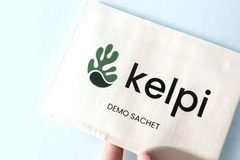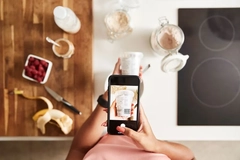Give it back: EU non-alcoholic beverage industry requests priority access to rPET amid downcycling concerns

15 Jul 2021 --- Natural Mineral Waters Europe (NMWE), the European Fruit Juice Association (AIJN) and UNESDA Soft Drinks Europe are urging the European Commission (EC) to provide the non-alcoholic beverage industry with “priority access” – or a similar mechanism guaranteeing “right of first refusal” – to recycled PET (rPET) in the upcoming revision of the Packaging and Packaging Waste Directive.
Ermis Panagiotopoulos, sustainability director at NMWE, tells PackagingInsights demand for food-grade rPET is high and outstripping supply, as the non-alcoholic beverage industry endeavors to meet the EU’s Single-Use Plastics Directive (SUPD) targets.
The SUPD stipulates incorporating 25 percent recycled plastic in PET beverage bottles from 2025, extending to 30 percent in all plastic beverage bottles from 2030.
The legislation also requires a 77 percent separate collection target for plastic bottles by 2025, increasing to 90 percent by 2029.
Don’t break the cycle
The non-alcoholic beverage industry is competing with numerous other end markets for rPET supply. A report by the European Federation of Bottled Waters (now NMWE), Petcore Europe and Plastics Recyclers Europe found only 32 percent of rPET went to food-contact packaging applications in 2018.
Meanwhile, almost a quarter of rPET (24%) was sold to the fiber markets (like polyester), 10 percent to strapping and 8 percent to other markets. The EU SUPD stipulates incorporating 25% rPET in beverage bottles from 2025.
The EU SUPD stipulates incorporating 25% rPET in beverage bottles from 2025.
For example, bio-industrial company Carbios recently announced a partnership with Michelin to produce car tires from waste PET bottles.
“Every industry has the right to use recycled materials to reduce its emissions and limit its impact on the environment,” says Panagiotopoulos.
“However, taking a PET bottle and transforming it into a tire is a downcycling process. Circular use of PET means our bottles are turned into new bottles.”
“If you turn a PET bottle into any textile, toy, or tire, this can only be done once, meaning it breaks the circle.”
Priority access essential
The beverage industry must have priority access to its own recycled material as it continues to invest in circularity and put highly recyclable PET on the market, says NMWE.
Priority access will help the beverage industry produce new packaging with food-grade recycled PET compliant with EU food safety standards, achieve its recycling targets and prevent its recycled PET being downcycled. An industry report found only 32% of rPET went to food-contact packaging applications in 2018.
An industry report found only 32% of rPET went to food-contact packaging applications in 2018.
“Food packaging serves specific needs, but most importantly safeguards food’s quality and safety,” explains Wouter Lox, secretary general of AIJN.
“Every food product has its specific packaging material properties and requirements to assure the packaging purpose. The access to the packaging material is essential to continue providing high quality and safe foods.”
“This requirement needs to be merged with the sector commitments to respond to the EU Green Deal and the Circular Economy Action Plan.”
Therefore, access to the recycled material responding to the highest food quality standards must be reassured at every stage of the circularity circle, Lox adds.
PET collection considerations
For Panagiotopoulos, the biggest challenge for rPET producers and their customers is “dramatically increasing” PET collection.
“That is why many countries are introducing deposit refund systems,” he explains. “At the same time, we need increased recycling capacities in Europe to process those materials.” Ermis Panagiotopoulos, NMWE sustainability director, says demand for food-grade rPET is high and outstripping supply.
Ermis Panagiotopoulos, NMWE sustainability director, says demand for food-grade rPET is high and outstripping supply.
“As a food sector, we only use high-quality food-grade rPET, and that is why we need the EC to swiftly authorize the PET recycling processes positively evaluated by EFSA to increase the availability of those materials, currently in demand.”
However, through significant investments in collection schemes and eco-design, PET bottles have become the most collected and recycled plastic items in Europe, according to Patricia Fosselard, secretary general of NMWE.
“Through well-designed deposit return schemes, several countries already achieve collection rates above 90 percent,” she indicates.
“Our members are determined to give every bottle a second life, but they can only do this if they get back the material they place on the market so we can successfully close the loop.”
Raw material supply shortages
In related news, Flexible Packaging Europe recently warned continuing raw material availability issues are creating a potential risk to the stable supply of food, pharmaceutical and medical products.
Meanwhile, European Plastics Converters (EuPC) has stressed the SUPD legislative processes are creating “an unprecedented fragmentation among the EU Member States.”
EuPC earlier warned SUPD guideline delay had left the EU plastics industry “scattered, unharmonized and in vagueness.”
PackagingInsights recently explored different perspectives on the EU’s SUPD with fiber-based suppliers, NGOs and plastics industry organizations.
By Joshua Poole










